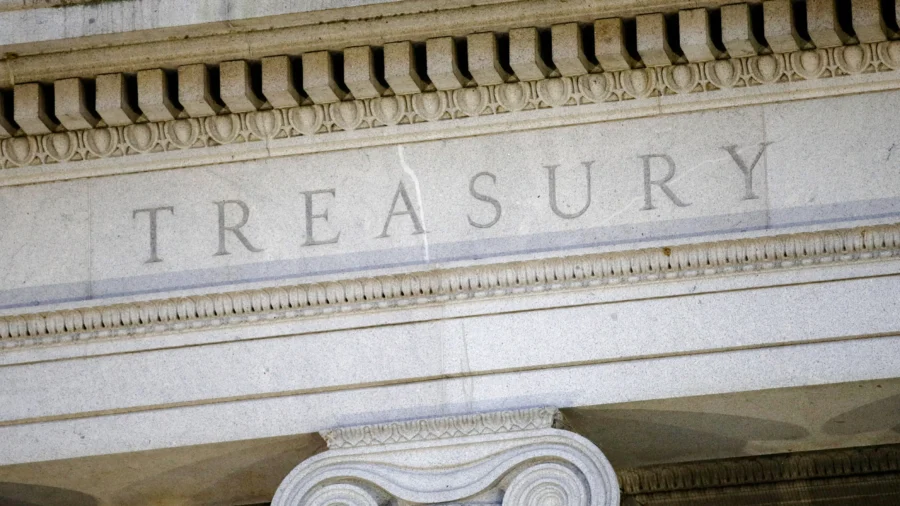The United States introduced sanctions on Nov. 21 against nearly 100 Russian financial institutions and 15 individuals in hopes of further constraining Moscow’s ability to wage war in Ukraine.
The Treasury Department listed 54 Russian banks and 41 securities registrars for sanctions.
The sanctions also target 11 Russian officials who work for the Central Bank of the Russian Federation (CBR), three members of the Shanghai branch of Russia’s VTB Bank Public Joint Stock Co., and the deputy managing director of the Russian Sberbank’s New Delhi branch.
The United States has previously sanctioned CBR, VTB, and Sberbank.
“Today’s sanctions targeting Russia’s largest remaining non-designated bank, as well as dozens of other financial institutions and officials in Russia, will further diminish and degrade Russia’s war machine,” Treasury Secretary Janet Yellen said on Nov. 21.
One of the major Russian banks targeted with this latest round of sanctions is the Gazprombank Joint Stock Co. and its various foreign subsidiaries.
The Treasury Department stated that Gazprombank serves as a key component of the Russian war effort by handling salaries and combat bonuses for Russian troops and compensation payments for the families of Russian soldiers killed in the war.
Gazprombank is Russia’s third-largest bank and has been a major channel for payments for Russian oil and gas exports.
While the United States and Ukraine’s various other Western backers have levied sanctions across the Russian economy, Europe has been heavily reliant on Russian fuel exports, and institutions like Gazprombank have seen fewer financial repercussions throughout the war.
With Europe weaning itself off Russian fossil fuel exports, the new sanctions show an increasing willingness to target Russia’s primary export.
Still, they come with a temporary carve-out for Gazprombank’s transactions for the Sakhalin-2 oil and gas development on Sakhalin Island.
Japan, a U.S. ally, has closely partnered with Russia in the Sakhalin-2 project.
A Nov. 21 statement from the Treasury Department’s Office of Foreign Asset Controls states that the new sanctions will not apply to exports to Japan from the Sakhalin-2 project until June 28, 2025.
The Treasury Department stated that the sanctions on the other banks and securities registrars will also undermine Russia’s ability to purchase equipment and technology critical to its war effort.
The sanctions come as President Joe Biden’s administration has moved to provide Ukraine with as much financial and military support as it can before Biden’s term ends in January.
Earlier this week, the administration announced a $275 million arms package for Ukraine, under the presidential drawdown authority. The administration also reversed a policy opposing the use of anti-personnel landmines this week and agreed to begin providing Ukraine with such weapons.
Other reports have emerged that the administration has permitted Ukraine to use U.S.-donated long-range weapons to strike inside Russian territory.
The administration has yet to confirm these reports.
“The United States remains committed to putting Ukraine in the strongest possible position, and we will continue to take all available steps to do so from surging security assistance to imposing and fully enforcing sanctions and other restrictions on Russia’s war machine,” White House national security adviser Jake Sullivan said on Nov. 21.
The new sanctions on Russia and the new weapons transfers to Ukraine come with just weeks to go before President-elect Donald Trump takes office.
Trump has signaled a preference for quickly negotiating an end to the war.
It remains to be seen how these negotiations may play out and whether the incoming Trump administration will stay the course set by the Biden administration if negotiations fail to bring a quick end to the war.
The Associated Press contributed to this article.
From The Epoch Times

